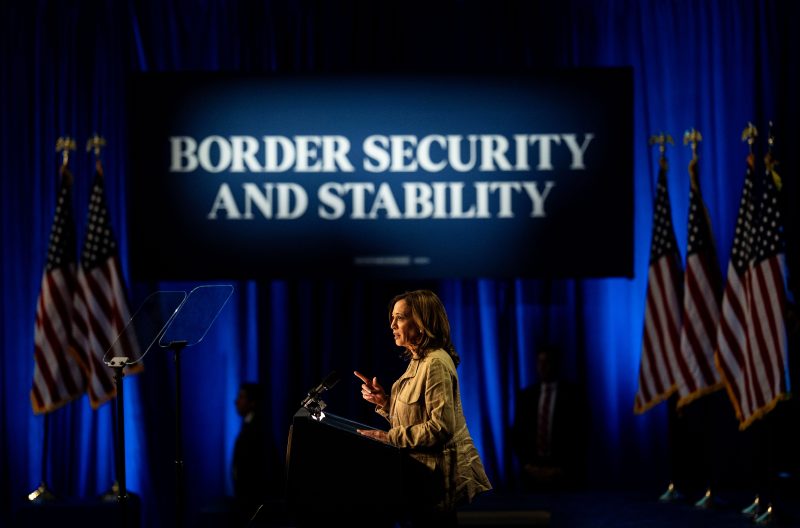In a recent turn of events, Vice President Kamala Harris has sparked a shift in her rhetoric on immigration, adopting a more stringent stance on border control. While this has drawn attention and criticism from some quarters, it has notably left immigration advocates surprisingly quiet.
Harris, who has been tasked with leading efforts to address the root causes of migration from Central America by President Joe Biden, recently issued a stern warning to would-be migrants, cautioning them against attempting the dangerous journey to the United States. Her unequivocal message advising individuals not to come to the U.S. in an unauthorized manner marks a departure from the more empathetic and inclusive tone often associated with advocates of immigrant rights.
This shift in Harris’ stance has raised eyebrows among those who have long championed comprehensive immigration reform and emphasized compassion towards migrants. Some critics have accused her of adopting a harsh and uncompromising approach that could lead to further militarization of the border and deter legitimate asylum seekers from seeking protection in the U.S.
However, the relative silence from immigration advocacy groups and activists in response to Harris’ tougher rhetoric is noteworthy. Rather than immediately condemning her statements or calling for a more compassionate approach, many organizations have opted to take a more measured and strategic approach.
One possible explanation for this tempered response is a recognition of the complex political dynamics surrounding immigration reform in the current climate. By refraining from publicly criticizing Harris, advocates may be seeking to maintain a working relationship with the Biden administration and position themselves as pragmatic partners in the push for meaningful policy changes.
Furthermore, some advocates may see value in Harris’ shift towards a more enforcement-oriented approach as a necessary step towards addressing the root causes of migration. By acknowledging the challenges posed by irregular migration and emphasizing the need for border security, Harris may be signaling a willingness to engage with conservative lawmakers and other stakeholders who prioritize immigration enforcement measures.
Despite the cautious response from immigration advocates, it is important to note that the debate over immigration policy remains highly charged and deeply divisive. The Biden administration faces significant pressure from both ends of the political spectrum, with calls for both stricter enforcement and more humane treatment of migrants competing for attention.
As Vice President Harris continues to navigate the complexities of immigration policy, it is likely that advocates will continue to monitor her statements and actions closely. While the current silence may reflect a strategic calculation on the part of advocacy groups, it remains to be seen how they will respond as the Biden administration moves forward with its immigration agenda.
In the meantime, the evolving dynamics of the immigration debate underscore the need for a nuanced and balanced approach that takes into account the diverse perspectives and interests at play. As policymakers grapple with the challenges of migration and border security, finding common ground and building bridges between different stakeholders will be essential to achieving lasting and meaningful reform.

